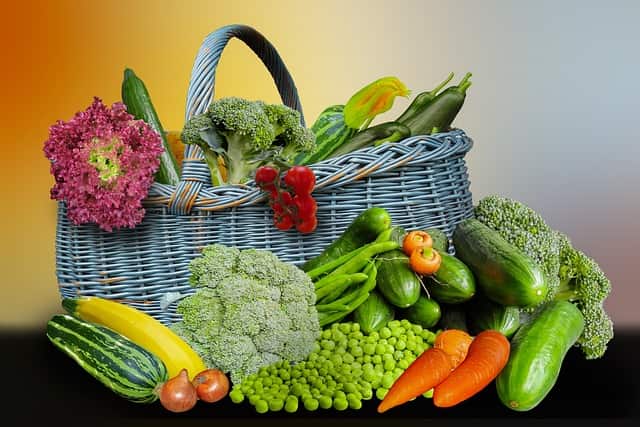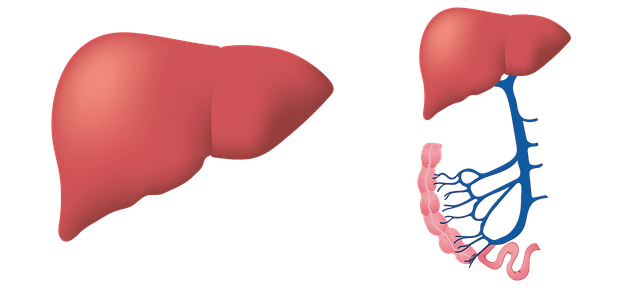How to Nourish Your Liver through 8 Super Best Foods for Liver Health?
Best foods for liver health

Introduction
The best foods for liver health are of prime significance because human liver plays a crucial role in our overall health and well-being. Best foods for liver health ensure maintaining a healthy liver to prevent liver diseases and ensure proper bodily functions.

WHO (World Health Organization) is embarking upon a slogan of ‘One life, One Liver’ and best foods for liver health. As per WHO estimates, if liver based viral hepatitis continue to be unaddressed then it may cause more mortality till 2040 than malaria, HIV and tuberculosis. It further enhances the role of best foods for liver health.
In this article, we will explore some of the best foods for liver health, discussing their benefits and how they contribute to maintaining optimal liver function.
What are Best Foods for Liver Health?
As far as best foods for liver health are considered which helps in maintaining high standards of liver health are as follows:
Green Leafy Vegetables
Vegetables are considered among top rated best foods for liver health. Green leafy vegetables, such as spinach, kale, and collard greens, are packed with essential nutrients that promote liver health. These vegetables are rich in antioxidants, vitamins, and minerals, including vitamin C, vitamin E, and folic acid which make them best foods for liver health. They aid in reducing liver inflammation, detoxifying harmful substances, and supporting liver cell regeneration.

Cruciferous Vegetables
The vegetables contain compounds called glucosinolates, which have been shown to support liver detoxification and enhance the production of enzymes responsible for removing toxins from the body. Cauliflower, Brussels sprouts and broccoli are among cruciferous vegetables which are liver friendly and considered as best foods for liver health.
Turmeric
Known for its vibrant golden color, turmeric contains the active ingredient curcumin, which has powerful anti-inflammatory and antioxidant properties. Curcumin helps protect the liver from damage caused by toxins and oxidative stress. Incorporating turmeric into your diet, either by adding it to dishes or consuming turmeric supplements, can be beneficial for liver health.
Fatty Fish
Fishes like sardines, salmon and mackerel contains ample amounts of omega 3 fatty acids. These healthy fats help reduce inflammation, prevent fat accumulation in the liver, and promote healthy liver enzyme levels. Including fatty fish in your diet twice a week can significantly contribute to maintaining liver health through best foods for liver health.
Nuts and Seeds
Nuts and seeds, including walnuts, almonds, and flaxseeds, are rich sources of antioxidants, omega-3 fatty acids, and beneficial plant compounds. These components help reduce inflammation, support liver function, and improve overall liver health. Snacking on a handful of nuts or incorporating them into your meals can provide significant benefits for maintaining a healthy liver.
Coffee
Good news for coffee lovers! Studies have shown that regular coffee consumption can lower the risk of liver diseases, including liver cancer and cirrhosis. Coffee contains antioxidants and beneficial compounds that reduce inflammation and facilitate optimal liver function. However, excessive caffeine intake should be avoided, as it can have adverse effects on overall health.
Ginger
Ginger is very effective and carries strong compounds like shogaols and gingerols which help in cellular protection and having anti inflammatory properties. Furthermore, it is effective in liver health against certain alcohol based toxic effects.
Garlic
Garlic botanically is a vegetable but its been used in various herbals treatments. It has antioxidant, anti inflammatory compounds like ajoene, alliin and allicin. Al of these compounds are liver friendly.
The Efficacy of Liver Health Supplements
Liver health is an imperative facet of overall wellness, often overlooked until an issue arises. Supplements marketed for liver health promise various benefits, from detoxification to improved function apart from best foods for liver health.
While these claims are attractive, they require a closer examination.
- Most liver supplements contain a blend of herbal extracts and vitamins. Milk thistle, for instance, has silymarin which is believed to have hepatoprotective properties. Clinical studies hint at its potential benefits, but the data remains mixed.
- Another component frequently found in liver supplements is vitamin E. Known for its antioxidant properties, vitamin E is thought to combat oxidative stress in liver cells. This oxidative stress is a concern as it can lead to liver diseases. Yet, supplemental vitamin E’s impact on liver health can vary, and caution is advised in its consumption.
- Ginseng is another powerful anti inflammatory herb which is known yet out of other effective options.
- Glycyrrhiza glabra (Licorice) is really effective herb which has medicinal characteristics. Its basically antiviral and anti-inflammatory and has positive impact on liver.
- The liver’s regenerative capacity is impressive, often rendering supplemental help unnecessary. A balanced diet and a healthy lifestyle are pivotal for maintaining liver health. In fact, reliance on liver health supplements over these foundational practices is ill-advised.
Liver health supplements also come under scrutiny for their potential interactions with medications. For example, certain herbal supplements can alter drug metabolism, leading to either decreased efficacy or increased toxicity of medications. This interaction underscores the importance of consulting healthcare providers before starting any supplement.
Despite the varying results of studies on liver health supplements, public interest remains high. People with liver conditions often turn to these supplements in hope of improvement. However, these individuals should proceed with utmost caution. Supplementation should never replace medical treatment for serious liver conditions.
The Don’ts for Optimal Liver Health
The cornerstone of overall well-being, liver health, is often overshadowed by other health concerns. However, certain practices can detrimentally impact this vital organ. By avoiding these “Don’ts”, one can significantly support their liver health.
Alcohol: First and foremost, limiting alcohol consumption is imperative to maintain liver health. Alcohol, when processed by the liver, releases chemicals that can cause inflammation and scarring. As these effects accumulate, the risk of cirrhosis and other liver diseases escalates. Moderation or abstention is therefore crucial for preserving liver function.
Painkillers: Equally important is the avoidance of over-the-counter painkillers. Often overlooked, the excessive use of medications like acetaminophen can cause liver damage. This is particularly concerning as individuals self-medicate for common ailments. Adherence to recommended dosages is essential to prevent inadvertent harm to liver health.
Saturated Fats: A diet high in saturated fats poses a third risk to liver health. These fats, prevalent in fast food and processed snacks, can lead to fatty liver disease. By opting for a diet rich in vegetables, fruits, and lean proteins, individuals can safeguard their liver health.
Obesity: Furthermore, staying within a healthy weight range is a vital strategy for reducing the burden on the liver. Obesity is intrinsically linked to fatty liver disease and its progression. A combination of regular exercise and a balanced diet is a key in maintaining optimal liver health.
Toxins: Critically, one must steer clear of toxins. Environmental pollutants and certain chemicals can overburden the liver’s detoxification processes. Selecting natural cleaners and products with fewer chemicals can decrease the exposure of the liver to these harmful substances.
Smoking: Additionally, smoking cessation is a definitive “Don’t” for those seeking to improve liver health. The toxins in cigarette smoke ultimately reach the liver, exacerbating the risk of liver cancer. Hence, quitting smoking is a positive move for liver health.
Stress: Stress management also plays a pivotal role in sustaining liver health. Chronic stress can trigger hormonal imbalances that impede liver function. Engaging in regular relaxation practices can therefore support liver health.
Practicing safe sex: Whilst unprotected sex does not seem directly related to liver health, it warrants attention. It can increase the risk of contracting hepatitis, a serious liver infection. Practicing safe sex and being cognizant of partner’s health statuses are precautions to prioritize.
Conclusion
Taking care of our liver is essential for our overall well-being. Incorporating best foods for liver health into our diet can help support optimal liver function and prevent liver diseases.
Green leafy vegetables, cruciferous vegetables, turmeric, fatty fish, nuts and seeds, and coffee are some of the best foods that promote liver health. By making these foods a part of our regular diet, we can actively contribute to maintaining a healthy liver and enjoying a better quality of life.
In conclusion, liver health supplements contain a variety of ingredients that may have some beneficial properties. Yet, the scientific evidence supporting their widespread use is not definitive.
They should be used sensibly and with a professional’s guidance. Ultimately, nothing surpasses the traditional tenets of liver health: a balanced diet, regular exercise, and moderation in alcohol consumption.
Finally, liver health can be fortified by avoiding behavior that jeopardizes this crucial organ’s function. Alcohol moderation, careful medication usage, conscientious diet choices, weight control, toxin avoidance, smoking cessation, and stress reduction all contribute to robust liver health. Adhering to these guidelines not only supports liver health but also bolsters general health and longevity.
FAQs
Why liver health has paramount importance?
Human liver plays a crucial role in our overall health and well-being
What are best liver friendly foods:
Vegetables, fruits, garlic, ginger, turmeric and other supplements
Which foods should be avoided for better liver health?
Alcohol, saturated fats , painkillers etc






